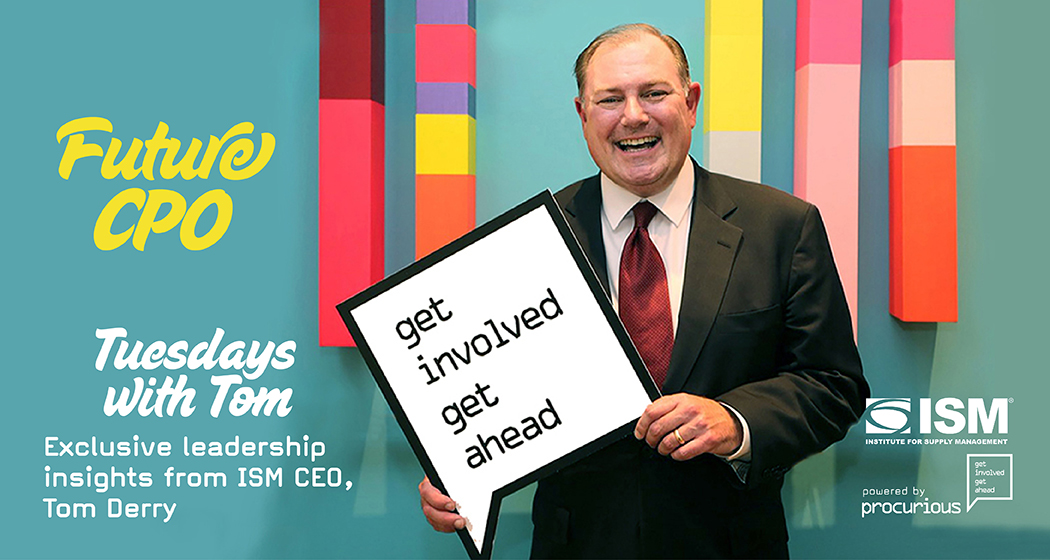3 Attributes Of The Future CPO
Why are organisations appointing CPOs from outside of the profession, what’s the no. one category that will produce future CPOs and should there be a new label for the role of CPO. 
The modern day CPO is vastly different to the CPO of a decade ago – both in terms of management style and the expectations put upon them by the organisation.
And so we can only assume that CPOs in 10-15 years will be similarly unrecognisable.
Who will get the top job in the future , what sort of professional background will they have ?
Tom Derry, CEO – ISM discusses why companies are appointing CPOs from outside of the profession, the no. one category that will produce future CPOs and a new label for the role of CPO
It doesn’t take a procurement professional to be CPO
There’s been a real trend in recent years of CPOs being appointed from outside traditional backgrounds. A savvy marketing professional or a cost-conscious operations manager could make a very attractive candidate for the role. Similarly, IT professionals – the innovation scouts who know how to drive change and understand key threats to the business like cyber security – could be chasing the CPO role.
“Requirements of the job and the definition of the job have to evolve over time and in the not too distance future,” explains Tom.
Tom outlines some of the key qualities of the CPO of the future.
Customer-facing expertise
“Customer-facing expertise, the ability to interact with, understand and even anticipate customer needs, is a critical skill”
One of the key themes in a recent CAPS research survey emphasised the importance of a demand-driven supply chain. “[This] means an orientation toward, and a sensitivity to, the needs and requirements of the customer, flexing to meet the customers requirements and configuring your supply chain and your procurement activities to meeting those requirements.”
Market expertise
It’s so important for future procurement leaders to have clear vision and strategy – a strategy that your team can implement based on what you’ve identified.
“Another way of saying that is market expertise” explains Tom. “Understanding where your company is, what markets you’re going after and the characteristics of those markets in terms of customer and suppliers [is really important]. [Someone with an understanding] of where markets are today and where they’re headed would be ideally suited to lead the supply chains and procurement activities of the future.”
Leadership
Tom stresses CPOs of the future do not need to be process experts. “We don’t need someone who has grown up in the ranks of procurement and has become very good at RF processes, scouting new suppliers, or understanding supply markets. These are key skills but they are not the leadership skills that are required to lead the entire companies effort- they’re just necessary functional skills.”
So where does Tom think CPOs will come from in the future? “Some will become category managers and then move laterally into different positions, and then move into the top job. But it won’t be a straight-line path. You won’t be climbing a ladder within the function to get to the CPO job. You’ll have to leave the function and come back, or come from outside the function because you’ve got the vision and strategic skills to lead.”

Part Three of Tuesdays with Tom is available now. Click here to sign up and hear ISM CEO Tom Derry discuss CPOs of the future and how we might label the profession going forward.